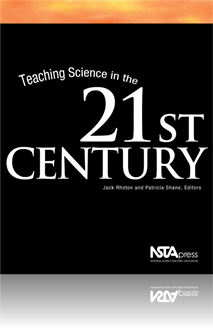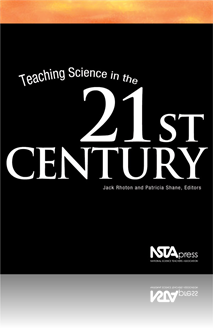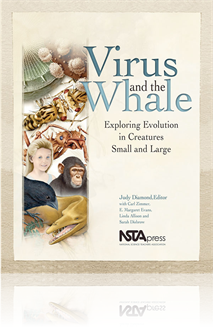All Book Chapters
Book Chapter
Research in Science Education: An Interdisciplinary Perspective
The continuing goal of science education research is the generation of pedagogical knowledge that can be used to improve meaningful understanding of science concepts by students. Using present initiatives in science education as a foundation, the aut...
Book Chapter
Classroom Assessment in the Service of Student Learning
Science education reform literature acknowledges the close relationship between assessment and learning. This chapter takes a closer look at this tight link between assessment and learning, specifically at how classroom assessment can be organized to...
Book Chapter
Engaging Teachers in Research on Science Learning and Teaching
Professional Development Standard C of the National Science Education Standards recommends that professional development activities for teachers "provide opportunities to learn and use the skills of research to generate new knowledge about science" (...
Book Chapter
Celebrating Diverse Minds: Using Different Pedagogical Approaches
The idea of science for all has been echoed nationwide. In order to be successfully implemented, inclusive quality pedagogical approaches are essential. These approaches should be authentic not just to the nature and content of science but also to ch...
Book Chapter
Leading Professional Development for Curriculum Reform
The ultimate goal of curriculum reform is to improve student learning through better teaching practices. One way to improve these teaching practices is to develop stronger instructional systems and support systems. In particular, supporting teachers ...
Book Chapter
Advancing Student Achievement Through Professional Development
Kindergarten through twelfth grade teacher competence, in both subject matter and pedagogy, is critical for advancing student achievement in science. The National Science Foundation (NSF 1996), however, has found that only about two-thirds of first- ...
Book Chapter
Building Ongoing and Sustained Professional Development
The East Tennessee State University Science Partnership (ETSUSP) is bringing about a restructuring of the system as it pertains to building and maintaining ongoing and sustained professional development in science teaching and learning at the middle ...
Book Chapter
Best Practices for Professional Development for the 21st Century
In order to support teacher quality in mathematics and science—powerful, content-specific staff development should be designed that is data-driven and evaluated, and is based on using ideas that work and knowing how educators learn. These themes pr...
Book Chapter
In this chapter, the author gives a general overview about evolution and its major themes—variation, inheritance, selection, and time. The author also takes a look at the basic principles by which evolution works, and considers how they have intera...
Book Chapter
This chapter gives specific background on the evolution of the seven organisms. The seven examples of evolution can be explored in the activities section of the book, as well as learning how scientists are discovering some of the evolutionary history...
Book Chapter
Teaching and Learning About Evolution
The National Association of Biology Teachers considers evolution to be the foundation for middle school life science. In the National Science Education Standards (NSES), evolution is an essential component of the science curriculum at all grade level...
Book Chapter
Viruses are tiny, but they pack a big punch. They spread and multiply fast, causing some of the most common and contagious diseases in the world. This chapter covers one of the deadliest viruses to emerge in recent years—Human Immunodeficiency (HIV...
Book Chapter
Diatoms (DIE-a-toms) are one of the most important things you never knew about. They are everywhere there is water. A drop of lake water is packed with them. You probably swallow millions every time you go swimming. These tiny, one-celled life forms ...
Book Chapter
Can a farm be the size of a walnut? It can if the farmer is an ant. Some of the world's smallest farmers are leaf-cutter ants. These six-legged farmers have amazed scientists by growing crops successfully for millions of years. What is the secret of ...
Book Chapter
Hawaiian Flies: Song & Dance Success
In this chapter, learn how over 800 kinds of flies have evolved from a single species of Drosophila that blew ashore on the remote islands of Hawaii. This is a group of flies found only on the Hawaiian Islands....




